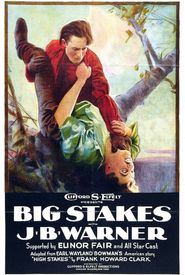James Byron Warner, the younger sibling of the illustrious H.B. Warner, entered the world in Nebraska during the year 1895, his arrival marking the beginning of a life deeply rooted in the world of acting. As a member of a family renowned for their thespian talents, Warner's upbringing was steeped in the performing arts. His father, Charles Warner, was a celebrated English stage actor, and his grandfather, James Warner, was also a well-known actor in his own right. It was only natural, then, that J.B. Warner would follow in the footsteps of his ancestors and pursue a career in the family business. Despite never gracing the stage of Broadway, Warner's commitment to the craft remained unwavering, and he continued to hone his skills as a performer.
Here is the biography of James Warner:
James Warner made his debut in the film industry in 1916, portraying the character "Jim Warner" in the production "Crooked Road" by Knickerbocker Star Features. This marked the beginning of his journey as a professional actor. The following year, in 1917, Warner appeared in two films, both produced by Falcon Features, under the pseudonym "James Warner". These films were "The Secret of Black Mountain" and "The Lady in the Library", showcasing his versatility as an actor.
In 1920, Warner relocated to California, where he signed a contract with Universal Pictures, a renowned film production company. He quickly became a staple in the production of horse operas, a genre of films that was extremely popular at the time. Some of his notable films during this period include "The Tough Tenderfoot" and "Blazing the Way", with Warner receiving top billing in his third film.
Warner's cinematic career persisted, with notable collaborations with Universal Pictures, where he took on additional film roles before branching out to independent production companies. This diversification enabled him to expand his acting repertoire, gradually transitioning away from his initial association with Universal. Subsequently, Warner found himself working alongside the renowned western film icon, Tom Mix, in the 1920s Fox film production, "For Big Stakes". Meanwhile, he also took the lead role in the western film "Big Stakes" at Metro Pictures, a project spearheaded by the visionary director and producer, Clifford S. Elfelt.
John B. Warner's professional journey as a leading actor in western films began at Metro, where he showcased his acting prowess in a string of six western productions, all carefully crafted by the esteemed filmmaker, Elfelt. Warner's distinctive billing as "J.B. Warner" was first introduced in his second film, Flaming Hearts, a milestone that marked a significant turning point in his career.
Following his successful stint at Metro, Warner made the transition to Sunset Productions, where he embarked on a new chapter in his acting career, starring in a total of eight low-budget western films, all masterfully produced by the visionary Anthony J. Xydias. The majority of these films, a testament to Warner's enduring talent, were released in the year 1924, leaving a lasting impression on audiences and cementing his status as a prominent figure in the world of early cinema.
The life of Warner was marked by a sense of premature termination, as his professional journey was brutally interrupted by the cruel hand of fate on November 9, 1924, in the vibrant city of Los Angeles, California, where he breathed his last at the tender age of 29, succumbing to the ravages of tuberculosis, a disease that had taken a devastating toll on his fragile body.






















